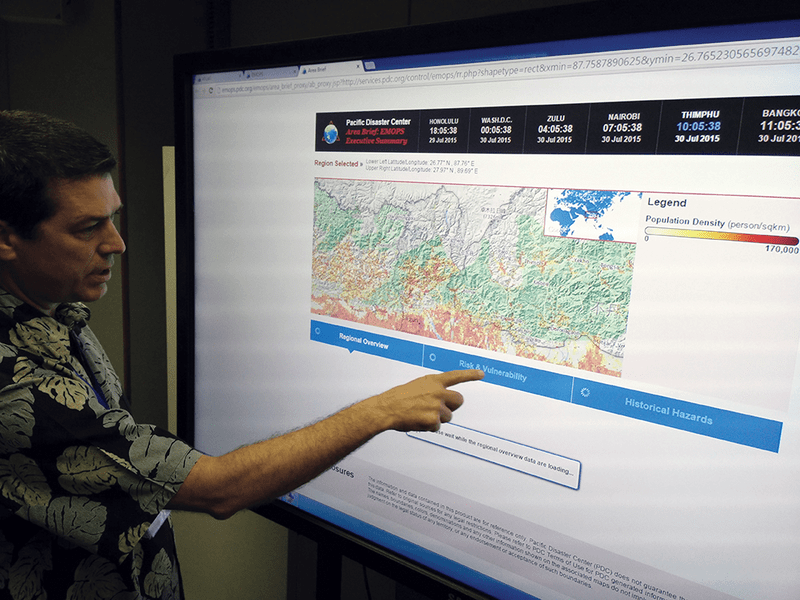The National Science and Technology Center for Disaster Reduction (NCDR) and the Asia-Pacific Economic Cooperation (APEC) Emergency Preparedness Working Group (EPWG) presented a “Workshop on Scientific Decision Supports for Emergency Preparedness of Natural Hazards,” July 27–31. The event was an opportunity for researchers, disaster managers, emergency responders, government officials, and practitioners to engage with one another directly. Delegates gathered at NCDR in Chinese Taipei to share information and experiences related both to sustainable support for economic development and to the threat of large-scale disasters that could potentially interrupt regional and global supply chains.
The Workshop was opened by Chinese Taipei Deputy Minister of Science and Technology Chung-Liang Chien and Peiyung Hsu, Director General of the Chinese Taipei Ministry of Foreign Affairs–Department of International Organizations who is also an APEC Senior Official. Workshop participants included representatives of 11 of 21 APEC economies—including PDC partners from Indonesia, the Philippines, Thailand, Vietnam, the AHA Centre, Asian Disaster Preparedness Center (ADPC), and Disaster Prevention Research Institute (DPRI, Kyoto University)—as well as Nepal and India.
On the second day, Pacific Disaster Center (PDC) Deputy Executive Director Chris Chiesa provided a presentation called “Practical Applications of DisasterAWARE during Nepal Earthquake 2015.” Chiesa demonstrated the essential role of the DisasterAWARE platform in delivering decisive, timely, and comprehensive solutions, built through quality partnership around a common interest in facilitating knowledge transfer from academia and the emergency management community to people in need of that information, including decision makers before, during, and following disaster.
Throughout the event, delegates shared valuable information on best practices for emergency preparedness and the applications of science, technology, and innovation to achieve mitigation of hazards, as well as response and recovery when disaster strikes.
Through sustained engagement with APEC member economies, the EPWG supports continual sharing of expertise, increased collaboration on emergency preparedness issues, and the strengthening the member economies’ capacity to manage emergencies and mitigate disasters.
For more information:
• Learn about another recent workshop on Hazard Mapping for Supply Chain Resilience,
• Read an article about an Interactive APEC Workshop on Geospatial Information, or
• Visit the APEC EPWG website.

